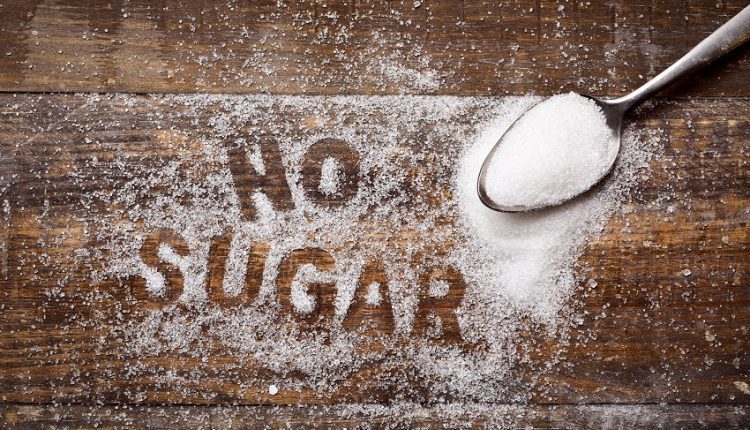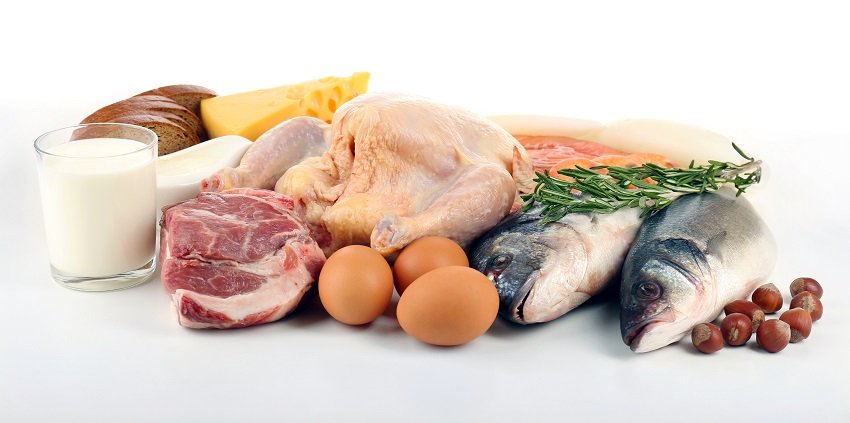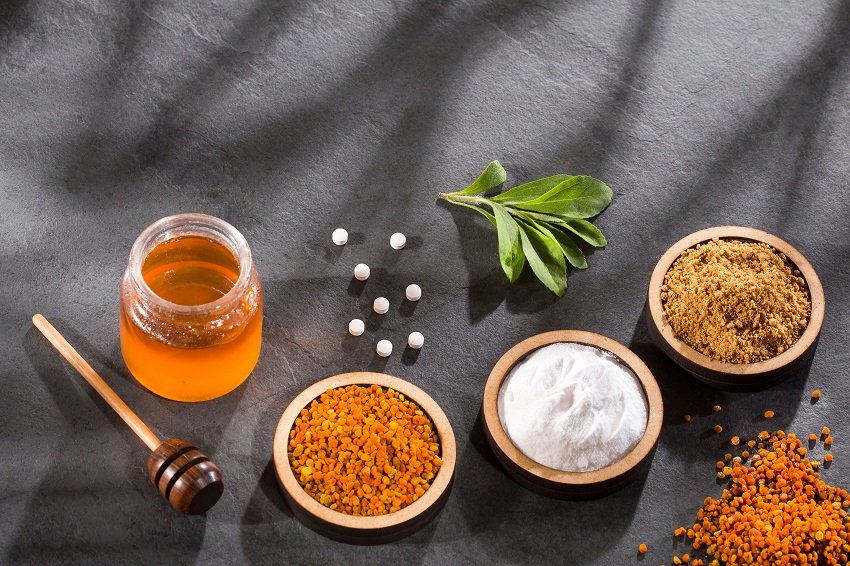
Using These Alternatives, Seniors Can Kick the Sugar Habit
As we age, we face various diseases that are the result of our diets. Diabetes and high blood sugar are among the most prevalent conditions we face during our old age. High sugar intake is one of the worst things we can do to our body because of its many adverse effects on our health.
Studies show that excessive sugar consumption can lead to type 2 diabetes, heart disease, cancer and tooth decay. Of course, there is sugar in fruits and vegetables, but their effect on blood sugar is negligible, and this type of sugar is very healthy. The main danger is the sugars added to processed foods. In today’s article on Living Maples Mag, we will introduce ways so that seniors stop using too much sugar.
Ways to Stop Using Sugar
Sugar-free Drinks Are Better Choices
Soft drinks, energy drinks and juices contain 44% sugar. Even seemingly healthy smoothies and juices contain sugar. For example, 450 ml of apple juice contains 12 teaspoons of sugar.
Your body does not recognize the calories it receives through the fluid intake. Drinking does not satisfy you; hence, people who drink a lot of juice do not reduce their food intake, which is the leading cause of various sugar-related issues. The best way is to turn to low-sugar drinks. Sugar-free drinks contain few calories, making them ideal for people watching their calorie intake. In addition to increasing weight, regular consumption of sugary drinks can lead to other health problems.
Alternative and low-sugar drinks:
- Water
- Herbal and fruit teas.
- Water and fresh lemon
- Sugar-free tea and coffee
- Water with mint and cucumber.
Choose Tastier but Less Sugary Desserts
Most desserts do not have enough nutrients. They are high in sugar, which raises blood sugar and makes you tired, hungry and in need of more sugar. If you need a sweet dessert, try these alternatives:
- Fresh fruit: Naturally sweet and rich in fibre, vitamins and minerals
- Greek yogurt: rich in calcium, protein, and vitamin B12
- Cooked fruit with cream: Use pears, apples, and plums.
- Bitter chocolate: The higher the amount of cocoa, the lower the amount of sugar.
- Dates: This fruit is naturally sweet and rich in nutrients
Avoid High sugar Sauces
We can find ketchup, barbecue, and sweet pepper sauce in most kitchens. But most of us are not aware of their high sugar content. One tablespoon of ketchup sauce contains one teaspoon of sugar.
Of course, some types of sauces have no added sugar. Always read the labels of these sauces to buy products with less sugar. Use these alternatives to add flavour to your food:
- Fresh or dried herbs and spices
- Fresh pepper
- Yellow mustard
- Vinegar
- Pesto sauce
- Mayonnaise
Eat High-fat Foods

Low-fat foods like peanut butter and yogurt are everywhere. If you think that fat is not suitable for your age, you will likely go for these options. But the fact is that low-fat products often contain a lot of sugar, and sometimes they have more calories than high-fat foods. For instance:
- 113 grams of low-fat vanilla yogurt contains four teaspoons of sugar and 96 calories. The same plain high-fat yogurt includes one teaspoon of natural milk sugar and 69 calories.
- 237 ml of coffee made with high-fat and sugar-free milk contains one teaspoon of natural milk sugar and 18 calories. In contrast, the same amount of low-fat mocha contains 6.5 teaspoons of sugar and 160 calories.
Eat Whole Foods
Whole foods are not processed or refined; hence, they do not contain artificial sweeteners. On the other hand, processed foods contain salt, sugar, and fat. They also contain compounds such as artificial sweeteners, chemical dyes, and stabilizers, which are not suitable for our health.
Ninety percent of the sugar in the Canadian diet is processed, while only 8.7 percent comes from whole foods. Hence, you should try to add whole foods to your diet to avoid excessive sugar intake.
Check the Sugar Content on Labels
Canned food is convenient and cheap, but they contain a lot of sugar. Avoid canned foods that contain syrup and sugar. The fruit is sweet enough, so go for canned foods that do not have extra sugar. If you have to buy canned fruits, you can reduce their sugar by washing them.
Be Careful about Eating Seemingly Low-sugar Foods
Most people know that candies and biscuits contain a lot of sugar, so look for better choices. For example, many seniors interested in cookies choose granola chocolate because they think granola has less sugar. But the truth is that they contain the same amount of sugar, and some granola types have eight teaspoons of sugar.
Some other seniors try to consume high-fibre dried fruits, nutrients and antioxidants and believe drying the fruit reduces its sugar content. It is a misconception since they also have high amounts of natural sugar and should be consumed in moderation.
- Read More: Nutrition in Seniors with Diabetes
Read the Food Labels
Consuming less sugar is not easy. Sugar can hide in a variety of foods. Some popular foods, such as bread, may also contain sugar. Two slices of bread contain 6 grams of sugar. Unfortunately, you can’t always count on food labels since current labels do not differentiate between natural sugar and added sugars.
It is better to look at the composition of the food. Companies use other names for sugar, which makes them more challenging to identify. Hence, you should pay attention to these names and try to avoid food products containing high amounts of any of these substances:
- Corn syrup
- Maltose
- Dextrose
- Rice syrup
- Molasses
- Caramel
Eat More Protein and Fat
Excessive sugar consumption increases appetite and weight gain. In contrast, a low-sugar but high-protein and low-fat diet has the opposite effect and reduces appetite. Added sugar, especially fructose, increases appetite and leads to overeating.
Studies show that protein reduces appetite and hunger. If you feel full, you will be less tempted to eat sugary foods. A study showed that a 25 percent increase in protein intake in the diet reduces appetite by up to 60 percent.
Increasing fat intake also reduces appetite. Fat receptors in the mouth and stomach change how fat is digested, decreasing appetite and calorie intake. This can be an excellent way for seniors to stop using sugar.
Use Natural Sweeteners
For some seniors, sugar is as addictive as drugs and alcohol. Studies show that sugar affects the brain just like drugs. Sugar addiction creates a kind of resistance in the body, which means you have to consume more to be satisfied.

On the other hand, quitting sugar is not an easy task. Studies show that people show signs of anxiety and depression after stopping a high-sugar diet. If you have this problem, you can try these natural sweeteners, some of which include:
- Stevia (licorice): This substance is extracted from the plant’s leaves of the same name and has no calories at all. Stevia has been shown to lower blood pressure and blood sugar in seniors with diabetes.
- Erythritol: It is found naturally in fruits and has only 6% of sugar calories but is much sweeter. It also does not increase blood sugar.
- Xylitol: This is also found naturally in fruits and vegetables and does not increase blood sugar.
Don’t Go Shopping When You Are Hungry
When you are hungry, not only do you buy more snacks, but you also go for more unhealthy foods. A study was performed on 68 seniors, half of them were hungry for 5 hours, and half received food before buying. The researchers found that hungry seniors bought higher-calorie foods than the other group.
Hence, postpone your shopping to the times when you are not hungry.
Have Enough Sleep
Having good sleeping habits is very good for your health. Inadequate sleep leads to depression, decreased concentration and reduced immune function. In a study of 23 healthy seniors, researchers scanned their brains after a good night’s sleep and after a night of insomnia.

The researchers found that the brain’s anterior lobe (which is responsible for making decisions) is impaired after a night of insomnia. This part of the brain is responsible for rewarding and controlling desire.
These changes have made people more inclined to eat high-calorie, sweet and salty foods. Another study found that seniors who slept late consumed more calories, fast food and soft drinks, and fewer fruits and vegetables.
- Read More: The Best Foods to Help Seniors Sleep
Final Words
Excess sugar in the diet is very harmful and can cause chronic diseases such as cancer, type 2 diabetes, heart disease and obesity in seniors. Avoid sources of sugar, such as desserts and soft drinks. Of course, there is some sugar in processed foods, such as sauces and low-fat foods. Hence, have whole foods to completely control your sugar intake.
Sleep is critical when it comes to healthy food choices. Whenever I don’t get a whole night’s sleep, I have the craziest food cravings. I have a simple trick; I use cinnamon. It has a satisfying taste and sweetness. You can add it to your coffee or milk. Honey is also a great alternative.
Sugar is practically poison when you’re my age. I hope people start to realize that and stop risking their lives just because they love sweets so much.
I heard sugar increase skin wrinkles by attaching to collagen!
Unfortunately, as people age, some of them have a health problem that is an increase in blood sugar. Most people like eating something sweet. I would recommend honey. You can use honey in your coffee even if you want to bake a cake. It is much healthier than sugar.